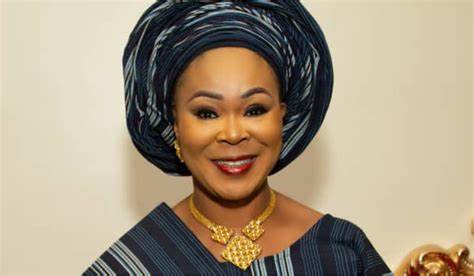The Ministry of Women Affairs made an N11,316,800 payment to Uju Kennedy-Ohanaye, its minister, to cater for her visa fees, estacode and contingencies
The Ministry of Women Affairs made an N11,316,800 payment to Uju Kennedy-Ohanaye, its minister, to cater for her visa fees, estacode and contingencies while in Dubai for the 2023 Conference of Parties (CoP) 2023.
The ministry made two payments; N5,100,000 and N6,216,800 on December 30, 2023, days after the conference on climate change ended. The payments contravene Nigeria’s Financial Regulations of 2009.
Via the Govspend portal, these payments were made with numbers 1001145932-1 and 1001145932-3.
For the first payment, the ministry described its purpose as ‘Payment to enable hon. minister [to] join [the] Nigeria delegation to Dubai for (COP28) climate programme’, while they described the second payment as ‘Payment of estacode, visa fees and contingencies in respect of hon. minister [to] join [the] Nigeria delegation to Dubai (COP28) climate programme’.
According to Chapter 7, Section 713 of Nigeria’s Financial Regulations 2009: “Personal money shall in no circumstances be paid into a government bank account, nor shall any public money be paid into a private account. Any officer who pays public money into a private account is deemed to have done so with fraudulent intention.”
This legal provision gained some popularity in December when Betta Edu, Minister of Humanitarian Affairs admitted to paying N585.2 million into the personal account of an official in her ministry.
Although she claimed her office made the payments to execute official business, Oluwatoyin Madein, Accountant General of the Federation, described the payments as illegal.
Via a statement, Madein said, “The Ministry was advised on the appropriate steps to take in making such payments in line with the established payment procedure. No bulk payment is supposed to be made to an individual’s account in the name of the Project Accountant.”
James Abalaka, Deputy Director of Fiscal Accounts in the office of the Accountant General of the Federation, earlier said there were exceptions to the law.
He said Chapter 10, Section 1001 of the regulations provided the only grounds for paying money into private accounts. This section refers to imprests “applicable to all sums advanced to a public officer to meet expenditure under current estimates, for which vouchers cannot immediately be presented to a Sub- Accounting Officer for payment”.
“Imprests are issued by the Accountant-General of the Federation and the Accounting Officers of Self-Accounting ministries/extra-ministerial offices and other arms of government,” the section reads.
As the COP28 ran from November 30 to December 13, 2023, and the payments were made on December 30, they do not qualify as advance payments.
The Accountant-General’s office did not make the payments either, which would also mean they do not qualify.
Via X on Wednesday, FIJ spoke with Oluseun Onigbinde, BudgIT founder, on the legality of the payments. He said, “All payments are made by the Accountant-General. The ministry can pay for hotel and per diem in my view, but we can interrogate the scale and appropriateness.”
Several reports have found that Nigerian MDAs continually flout the financial regulations and pay sums to private individuals’ accounts. For the COP28, Nigeria had the second largest delegation among countries arriving Dubai, only surpassed by Brazil.
